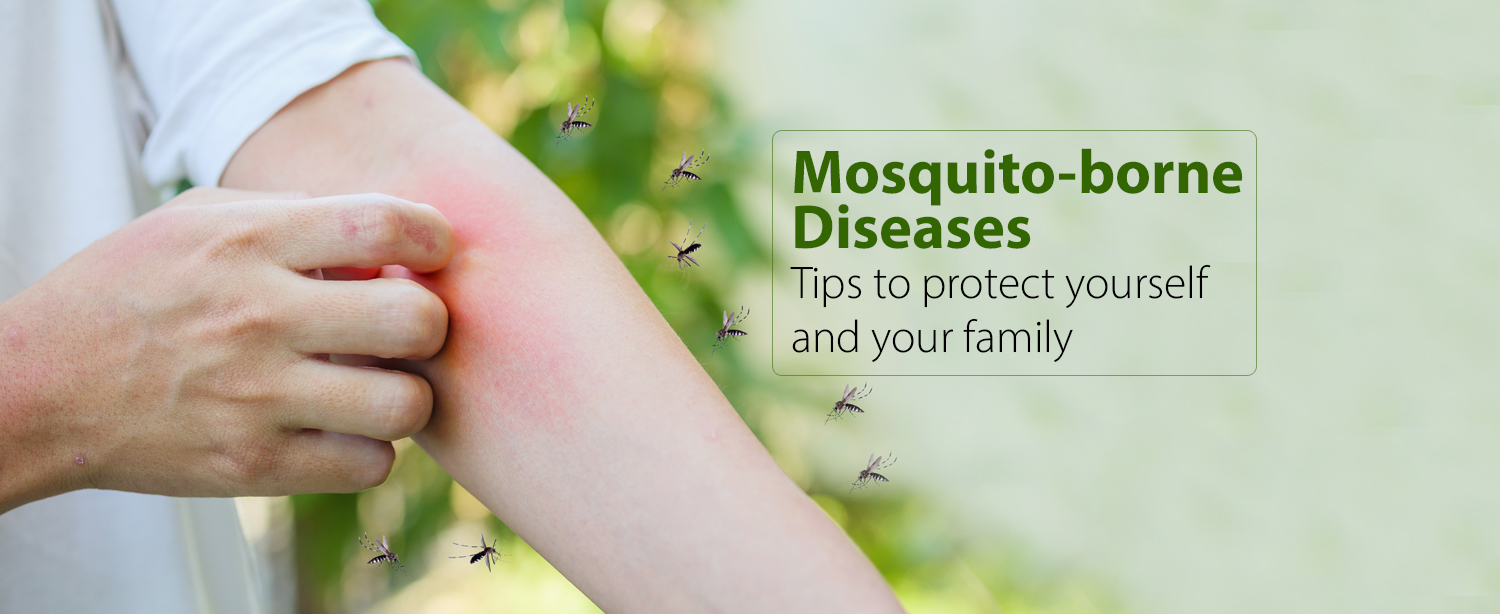Medical statistics suggest that 1 in 4 Indian families have been hit by a mosquito-borne illness in a span of three years. Collectively, vector-borne diseases account for more than 17% of all infectious diseases globally and are responsible for more than 700,000 deaths annually. Mosquito-borne diseases are prevalent in many parts of the world, and understanding how to protect yourself and your family is crucial for staying healthy.
Understanding Mosquito-Borne Diseases
Mosquitoes are vectors for a number of diseases, including malaria, dengue fever, chikungunya, Zika virus, yellow fever, etc. These diseases are caused by parasites, viruses, or bacteria that are transmitted to humans through mosquito bites. The hot and humid climate of Mumbai, the presence of stagnantwater, poor sanitation levels, as well as theongoing infrastructure upgradeare some reasons to blame for breeding mosquitoes. Here are some common mosquito-borne diseases:
- Malaria
Cause: Malaria is a parasitic infection transmitted by female Anopheles mosquitoes carrying the Plasmodium parasite.
Symptoms: The onset of malaria symptoms typically occurs 10 to 15 days after being bitten by an infected mosquito. Symptoms include high fever, chills, sweats, severe headache, nausea, vomiting, and body aches. In severe cases, it can lead to complications like anemia, jaundice, and organ failure. - Dengue Fever
Cause: Dengue fever is a viral infection transmitted by Aedes mosquitoes, particularly Aedes aegypti.
Symptoms: Symptoms include high fever, severe headache, pain behind the eyes, joint and muscle pain, and a characteristic skin rash. - Zika Virus
Cause: Zika virus is a viral infection primarily transmitted by Aedes mosquitoes, mainly Aedes aegypti and Aedes albopictus.
Symptoms: Common symptoms include fever, rash, joint pain, red eyes (conjunctivitis), muscle pain, and headache. - Chikungunya
Cause: Chikungunya is a viral infection transmitted primarily by Aedes mosquitoes.
Symptoms: Symptoms include fever, joint pain (arthralgia), muscle pain, headache, and a characteristic skin rash.
Tips for Protecting Yourself and Your Family
Here are some helpful and essential tips to follow to reduce the incidents of mosquito bites:
- Use Insect repellant
Apply insect repellent containing DEET, picaridin, or oil of lemon eucalyptus to exposed skin when outdoors, especially during dawn and dusk when mosquitoes are most active. - Wear Protective Clothing
Wear long-sleeved shirts, long pants, socks, and closed-toe shoes to minimize exposed skin. - Use Mosquito Net
Sleep under mosquito nets, especially if you’re in an area where mosquito-borne diseases are prevalent. - Eliminate Standing Water
Mosquitoes breed in stagnant water, so empty any containers or objects that collect water around your home, such as flowerpots, buckets, and bird baths. - Screen your Windows
Keep windows and doors covered with a net to prevent mosquitoes from entering your home. - Avoid Outdoor Activities
Mosquitoes are most active during dawn and dusk, so try to limit outdoor activities during these times.
Mosquito-borne diseases pose a significant health risk to individuals and families around the world. By taking proactive measures to protect yourself and your loved ones from mosquito bites, you can reduce the risk of contracting these potentially dangerous diseases. However, if you or a family member is infected by a mosquito-borne infectious disease, reach out to doctors at our Department of Internal Medicine for appropriate medication and care. Please find below the website for more details: https://www.kokilabenhospital.com/departments/clinicaldepartments/internalmedicine.html


